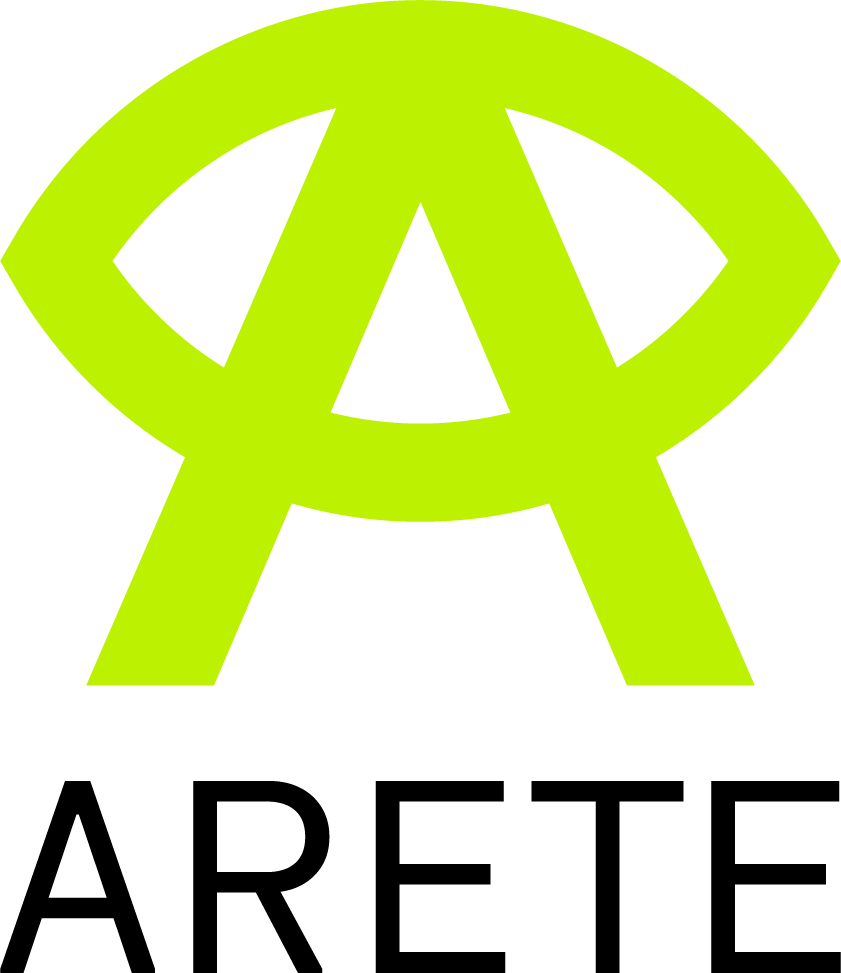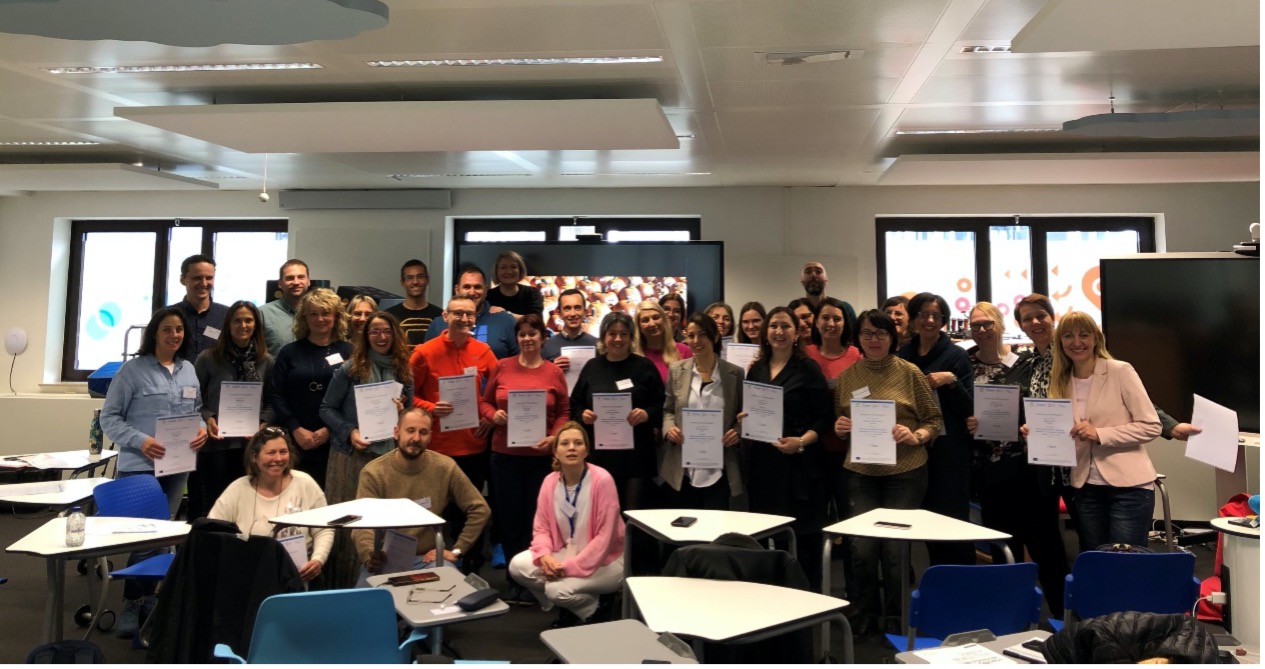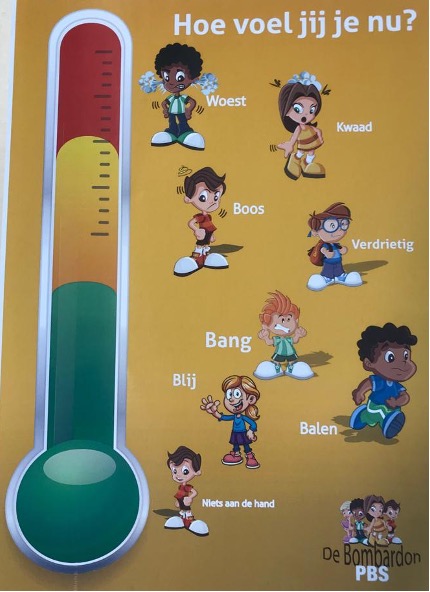WP1: Ethics Requirements
Leader: Eleni Mangina (UCD)
Objectives: To ensure compliance with the ‘ethics requirements’ set out in this work package
In the ARETE project, it underpins our research in three ways, by: enabling better research design; translating fundamental commitments into research practice; and, enhancing debate and building platforms and guidelines to increase public trust and acceptance.
You can learn more here.
WP2: Project Management
Leader: Eleni Mangina (UCD)
Objectives: Management aims to ensure that the planned project activities are effectively performed, pursuing the project objectives in line with time schedule, budget the establishment of standards for quality, risk mitigation, innovation management, conflict resolution, ethical and data protection. UCD is responsible for all typical reporting and financial management activities required by the European Commission and will pro-activity lead, by pursuing:
- Encourage and facilitate meaningful interaction between all partners;
- Coordinate at management level of all technical activities of the project;
- Prepare and manage the consortium agreements amongst the partners;
- Contractual, legal, financial, ethical aspects and administrative management;
- Collect audit certificates from the participants, where relevant.
You can learn more here.
WP3: Interactive Augmented Reality Toolkit
Leader:Fridolin Wild (TOU)
Objectives: Interactive AR Content toolkit ensures that 3D objects will be developed based on AR standards, global curriculum guidelines with a focus on English language literacy and STEM subjects, which are an important aspect of the development of the 21st century skills alongside digital literacy skills, including the important IEEE ARLEM 2.0 and IEEE VR/AR Augmented Reality. The activities involved will be in line with the overall project objectives. WWL is responsible for all AR 3D learning objects’ implementation required for the English language remedial apps to provide effective and interesting learning interactivity for the users, while CLB is responsible for the AR apps for STEM subjects. UCD, CLB, WWL and TOU will work together on the technical development of the content based on the AR authoring toolkit provided from TOU. Thus, the main objectives of this work package are:
- Design and development of interactive 3D learning content;
- Design and Development of AR app for both IOS and Android;
- Design and development of 3D augmentation as well as AR learning experience model digital repository;
- Documentation of 3D interactive objects’ standards for AR, contribution to IEEE ARLEM 2.0.
You can learn more here.
WP4: User-centred Interactive Design
Leader: Effie Law (UDUR)
Objectives: The underlying objective of WP4 is to identify, update and integrate, on an ongoing basis, user-based insights into designing and developing the ARETE project, rendering it to be highly useful, usable, desirable and pleasurable. The work of WP4 will help realize a vision of ARETE: enabling different stakeholders to use the AR technology with ease and positive experience for meeting their educational needs, preferences and goals. Methodologically, WP4 will adopt the well-established Human-centred Design (HcD) and User Experience (UX) methods in the field of Human-Computer Interaction (HCI) and adapt them for addressing the particularities of AR. Iterative design and evaluation processes with a high level of user engagement will be undertaken in parallel with the three version release of the ARETE ecosystem (α, β, γ). In the first cycle, WP4 will collect baseline data in terms of user needs and educative practices in situ to inform the scope of pedagogical content (WP3), and of technical implementation of the CLB and WWL content within ARETE project (WP6). In the second and third cycle, we will conduct formative usability and user experience evaluation of the ARETE toolkit prototype of increasing maturity, analyzing how users interact, appropriate and perceive different components of the ARETE project as well as its entirety and the impact of the interactive technologies towards positive behaviour (WP5). Evaluation feedback on the usability and user experience of the prototypes will facilitate their redesign to attain the highest possible quality. This feedback will be collected from gender-balanced samples of the target groups and can be of different formats, such as verbal comments (written/oral), log data, and sketches captured by questionnaire, interview, focus group and online tools with both digital and paper-based media. The progressive, highly focused and intensive participatory design activities of the three cycles of WP3 will complement the extensive larger-scale validation and evaluation work in Pilots (WP6). Thus, the implementation objectives of WP3 are to:
- construct viable use scenarios for the ARETE project, informing the content and technical development as well as pilots;
- elicit and analyze user needs, requirements and visionary use cases for the ARETE project, enhancing the quality of its features;
- conduct formative usability and user experience analysis of the early prototypes of the ARETE project for its iterative refinements;
- conduct summative usability and user experience analysis of the advanced prototypes of ARETE project to assess their quality and potential adoption and acceptance, informing the dissemination and exploitation work.
You can learn more here.
WP5: Interactive AR for PBIS
Leader: Giuseppe Chiazzese (CNR)
Objectives: WP5 aims to develop and evaluate the multi-user interaction through augmenting the human interaction with different groups. It is of vital importance for ARETE to realize whether augmented interactions provide Positive Behaviour Intervention & Support, abbreviated as PBIS (Sugai & Horner, 2009), which was developed in the USA, to guide schools and educational professionals in creating these school systems for addressing behavioural challenges based on shared values (e.g., school-wide establishment of school values and a PBIS leadership team). PBIS provides schools with accurate systematic implementation and use of evidence-based practices related to behaviour management in a multi-tiered system of behaviour support. There is sound and growing evidence for the effectiveness of PBIS in diverse settings and contexts across the USA (Benedict, Horner, & Squires, 2007). Usually when an initial school-wide PBIS system is implemented within a school, the team of teachers teach the values and behavioural expectations and acknowledge positive behaviour. This means establishing clear expectations, the use of positive reinforcement, and systematically teaching the behaviour. WP5 will implement the PBIS theory within AR multi user interaction context. Within WP5 across school personnel and leadership teams of European schools already implementing PBIS for 2-3 years (these schools are part of the PBS-Europe network) will be asked to join the end users of ARETE and evaluate the effect of the integration of AR embedded in PBIS interventions within classroom settings. ARETE will enrich the current PBIS practices with Experience API (xAPI - formerly known as TinCan) for behaviour tracking and logging, complemented with a cloud-based learning record store and PBIS analytics. Design and development will be done in a collaborative team via the method of Lesson Study, a well-known professional development approach in which small teams of teachers collaboratively design an instructional lesson, teach the lesson for a selected group of students or class, observe the enacted behaviour of the students, and reflect on this process, with the goal of refining the lesson. In this case the lesson is a lesson targeting behavioural management. This will be done during live transnational meetings and via webinars. After and in between the meetings and webinars in each school the leadership team selects a class of students to use the AR with during a period of three months. We will measure the target behaviour of the students prior and after the intervention period in order to assess a change in the behaviour of the students due to AR interactivity and of course the developed innovative pedagogical method implementing the AR within the lesson series. Thus, the implementation objectives are to:
- Capture and define requirements for the development of AR for a PBIS system of teaching values and expectations;
- Work with leadership PBIS teams in order to develop pedagogical methods;
- Set up and implement all PBIS pilot-specific components;
- Conduct the training process with pilot operatives (leadership teams) from European member states;
- Conduct the pilots on a phase introduction basis to ensure the effective operationalization and management;
- Capture and analyse the AR PBIS pilots’ performance (i.e. via user [teachers and students] quantitative and qualitative feedback).
You can learn more here and here.
WP6: Pilots’ Implementation, Deployment and Evaluation
Leader: Agueda Gras-Velazquez (EUN)
Objectives: WP6 aims to pilot studies across Europe (Pilot 1, 2, 3) to be executed. The implementation of the interactive AR technologies within ARETE, which will primarily focus on the examination and implementation of both CLB and WWL platforms, will be conducted in this WP. The Pilots Manager will conduct the planning, preparation of the pilots in advance of execution. This process includes training the trainer (i.e. local teachers at primary schools that participate within the pilots). This task involves the Pilots Manager regularly engaging with the participating trained teachers and monitors the progress of the effective execution of ARETE live across each pilot for each study group in different languages. Quantitative and qualitative feedback will be obtained through the ARETE project data collection process involving regular feedback from the users through purposely-designed questionnaires. The Pilots Manager will work closely and engage with the Project Coordinator and the Innovation Manager in particular. In light of the undertaken Pilot work, at M25 to accelerate proceedings, a well published and dedicated ‘Hackathon Week’ will be implemented by UCD and will involve each of these 3 Managers focusing on tasks related to the implementation of effective AR interactivity. It is anticipated that the outcome of the hackathon will strengthen the ongoing activities in the Pilots and project interest. The creator of AR.js (Jerome Etienne) will be invited to lead the hackathon, as he is the Principal Engineer at Amazon Sumerian, author of Learning Three.js blog, 8th most active user on GitHub and he has been CTO and has led the core apps team of AR Smart Helmet. Thus, the implementation objectives are to
- Capture and define requirements for the execution of pilots;
- Set up and implement all pilot-specific components;
- Integrate and validate the operation of the pilots within the ARETE project;
- Conduct the training process with pilot operatives (teachers) from European member states;
- Conduct the Pilots on a phase introduction basis to ensure the effective operationalization and management;
- Capture and analyse the pilots’ performance (i.e. via user quantitative and qualitative feedback);
- Determine AR interactive technologies’ next generation functionality and priorities.
You can learn more here.
WP7: Dissemination, Exploitation & Communication
Leader: Esther Novo (VICOM)
Objectives of this work package are to:
- efficiently disseminate and communicate details of the project activities to society and the targeted community, promoting awareness including via engagement with individual stakeholder dissemination activities as well as via external parties including the targeted market influencers and with the support of the external Advisory Board;
- prepare communication channels (including website, social media, etc.), develop and promote dissemination materials (e.g. brochure, blogs, papers, press releases, etc.) as part preliminary planning and undertaking for the market outreach of the project results;
- investigate, analyse and prove that the AR interactive technologies within ARETE are well positioned and suitable for market take up beyond the life of the project and.showcase the results of the project by hosting 2 international workshops in line with the interactive AR technologies application roadmap;
- exploit the intellectual property developed within the project;
- deliver the AR Learning Objects standards based on the effectiveness of the AR interactive technologies from WWL and CLB.
During WP7, we will analyse the opportunities for building links with other research and innovation projects and related activities. This WP will be undertaken with contributions from all partners throughout the project. Google Analytics and Hootsuite/Klout will be used to measure/monitor dissemination and communication impact. Obtaining No. 1 position on Google engine searches for ‘Augmented Educational Interactive Technologies’ is a target. The WP Leader will report to the Project Coordinator details of an assessment of dissemination and communication achievement against targets and, if needed, will propose remedial actions for Project Coordinator approval.
You can learn more here.



